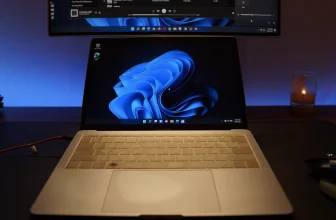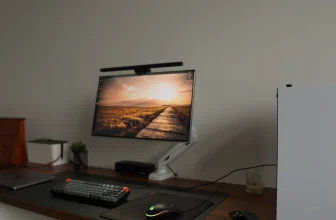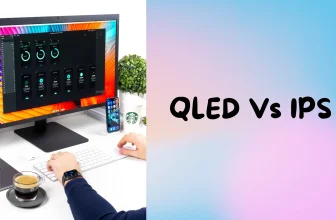4K Vs. 1080p: Which Resolution Brings A Better Experience?
When searching for a display, whether a TV or computer screen, the resolution is one of the essential features to check. 4K and 1080p are popular choices, but how do they differ?
This article will help you compare 4K vs. 1080p side by side. We will also recommend the best cases where you should choose one over the other. Let’s check it out!
What Is The Difference Between 4K Vs. 1080p?
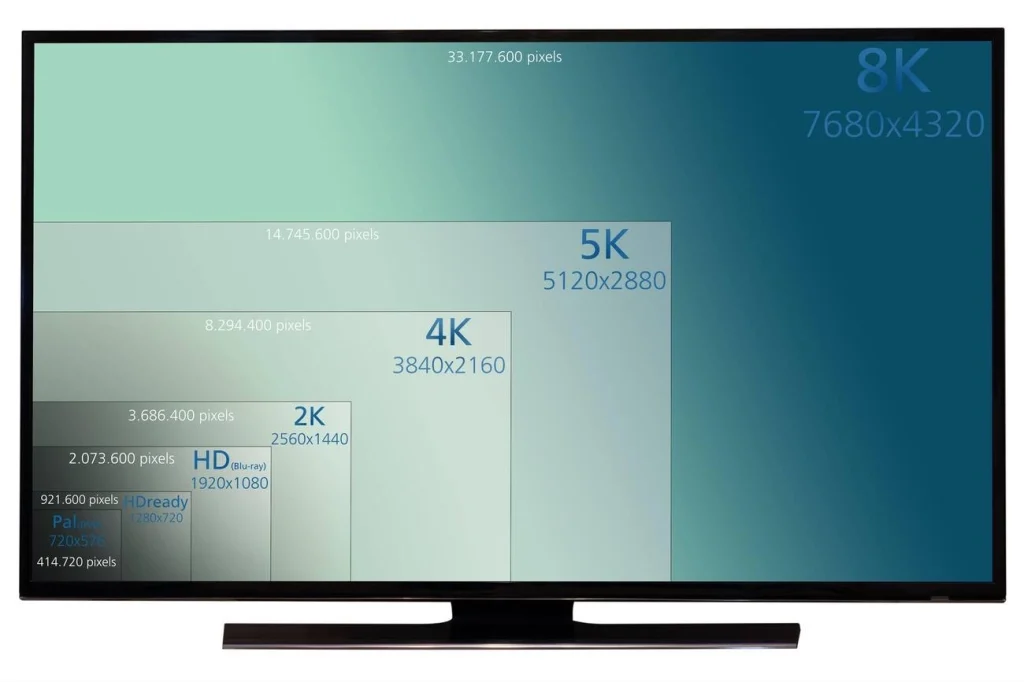
4K and 1080p are both video resolutions. 4K refers to a resolution of 3840×2160 pixels, while 1080p has a resolution of 1920×1080 pixels.
However, it might be confusing because 4K measures the number of horizontal pixels (3840), whereas 1080p relates to the number of vertical pixels (1080).
The 4K resolution has four times as many vertical pixels as its name suggests. However, it has twice as many horizontal and vertical pixels as a 1080p screen.
First, please check this comparison table to learn about their differences:
| 4K | 1080p | |
| Resolution | 3840×2160 | 1920×1080 |
| Total Pixels | 8 million + | 2 million + |
| Marketing Names | Ultra High Definition, UHD, Ultra HD | Full High Definition, FHD, Full HD |
| Image Quality | Excellent | Good |
| Colors |
More dynamic |
Moderate |
| Bandwidth | Higher | Lower |
| Processing Power |
More powered required |
Less power required |
| Price | More expensive | Cheaper |
Visual Quality
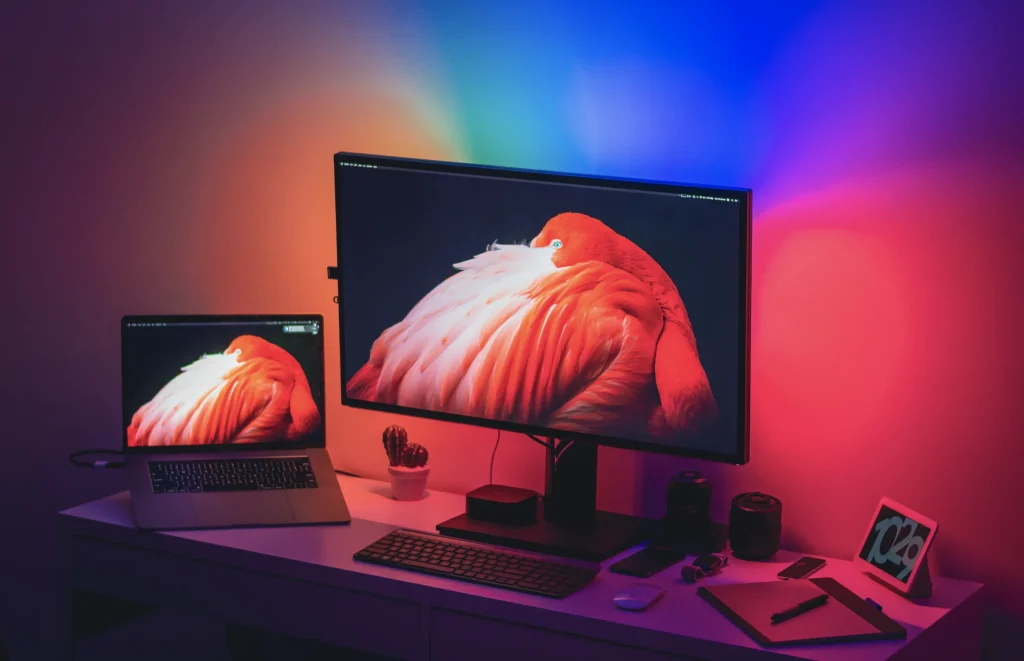
With almost four times as many pixels, a 4K display allows you to see much more detail. Generally, movies will appear sharper on this screen.
Besides, compared to 1080p, 4K may provide more vibrant colors and deeper shadows. Although the resolution does matter, innovations like HDR and OLED have a more significant influence in this area.
4K delivers better visual quality than 1080p in general. However, the difference might not be easy to notice on smaller displays or at closer viewing distances.
When choosing the resolution for your TV, you should check the viewing distance. For example, if the distance from your sofa to the TV is close, consider the better resolution and a larger screen to enjoy the sharp images.
Bandwidth
The bandwidth needed to carry and store 4K material is significantly higher since it contains more pixels.
The 4K data requires a lot more storage capacity than 1080p ones, and streaming 4K movies calls for a fast and reliable internet connection.
Processing Power
Aside from the high bandwidth requirements, 4K content requires much more processing power. Hence, your options on compatible devices will be limited.
Price
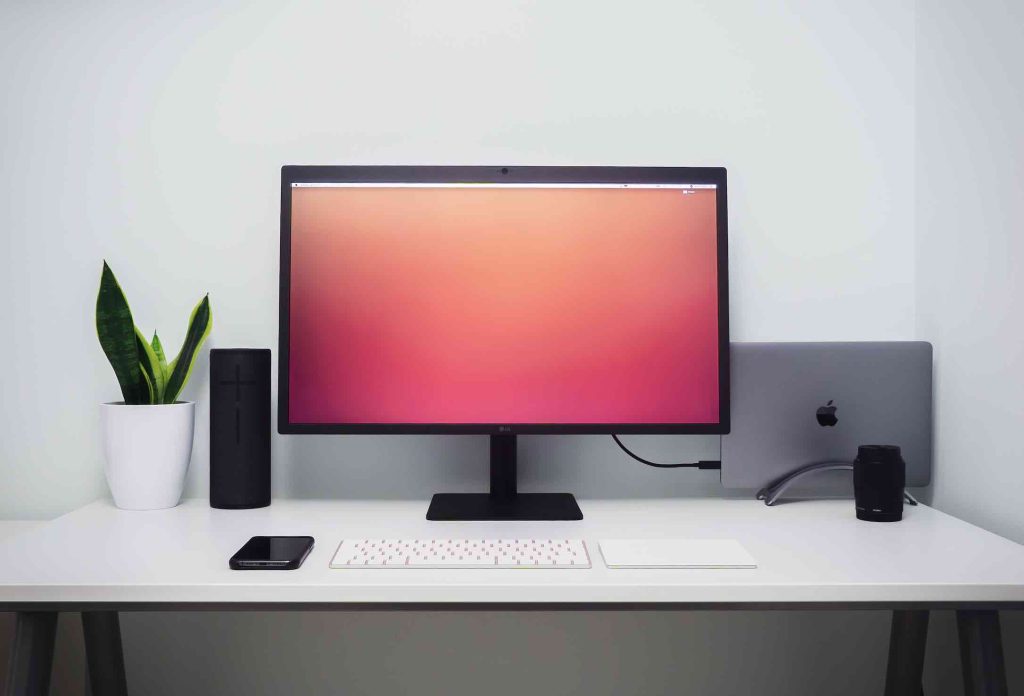
The cost of 4K content is higher than that of 1080p equivalents. 4K technology is more modern and sophisticated, increasing the cost of manufacturing and distribution.
4K demands more bandwidth and processing power to display. As a result, the equipment and technology needed to handle 4K content may be more costly.
However, costs for 4K screens and content may decrease over time when the technology becomes more easily accessible.
Which Should You Choose?
Both 4K and 1080p resolutions have pros and cons. While the 4K delivers a crisper and richer visual effect, you have to give it sufficient bandwidth and processing power. The cost will be higher, too.
Here are some factors to consider when choosing between 4K vs. 1080p:
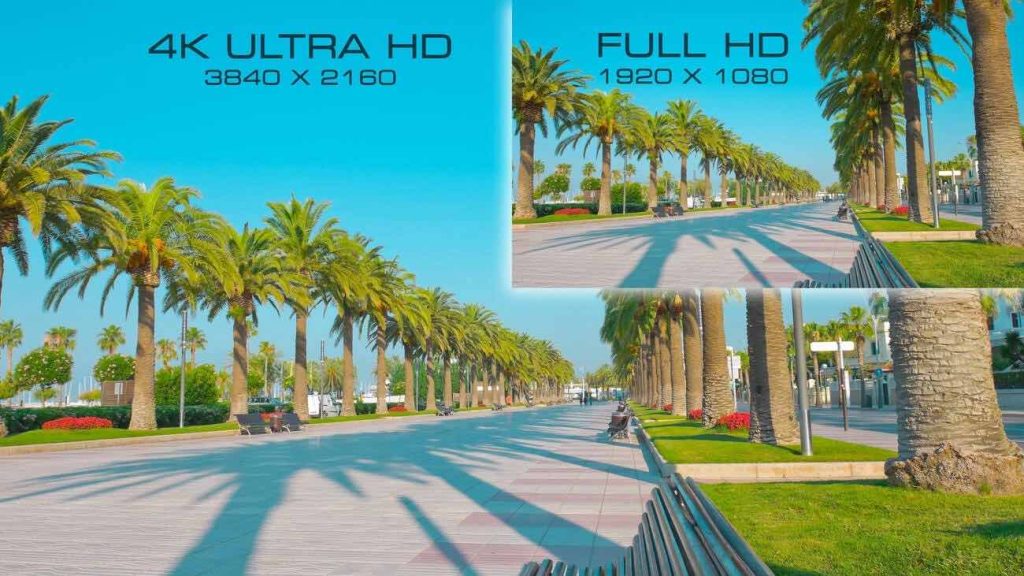
Screen Size
You may see a considerable increase in image quality with 4K content if you have a big TV (usually 55 inches or more) or if you sit close to it.
Otherwise, if you have a small screen, the difference in resolution will be minor. So you should go for the 1080p display to save your cash.
Content Type
If you often watch or generate 4K content, consider investing in a 4K monitor to benefit from the higher resolution fully.
Nevertheless, you may not see a noticeable improvement in video quality with a 4K monitor if most materials you watch or generate are only accessible in 1080p.
Budget
4K monitors are often more costly than 1080p. You could be better off going with a 1080p screen if you’re on a strict budget or don’t view or create anything in 4K.
Future Proofing
A 4K display must be a wise purchase if you intend to use your monitor for a while to future-proof your system. You can take advantage of the higher quality without upgrading your monitor as more material becomes accessible in 4K.
FAQs
- 1080p or 4K, which is better?
The answer to this depends on a variety of factors such as the size of your TV, how you plan to watch content, and what type of device you are using. 1080p (full high-definition) resolution has been around for years and offers improved picture clarity over standard definition.
The 4K (ultra-high-definition) resolution offers four times the amount of pixels as 1080p and a much more immersive viewing experience.
- What is the best choice for watching movies?
For watching movies, 4K is the best choice. 4K resolution provides a much richer viewing experience with more detail and better color accuracy. Most newer 4K TVs up-convert 1080p content to give you improved image quality even when watching older movies or shows.
- What’s the difference between 1080p, 2K, and 4K?
1080p is the most common standard of HD resolution and is also known as full HD or FHD. The 2K resolution, also known as QHD (Quad High Definition), offers four times the number of pixels as 720p.
4K resolution is the next step up from 2K and offers four times the amount of 1080p. The higher resolutions provide better picture quality, but they require more processing power to run smoothly.
Final Verdict
A 4K monitor can be a better choice if you have a huge screen and want to sit near it. You can appreciate the better-quality pictures. In contrast, you may prefer a 1080p monitor if you have a tight budget or don’t need the higher resolution.
So what do you say? Feel free to share your opinions with us. Thank you for stopping by, and see you in the next post!
Hanna is a technical copywriter and editor with a focus on PC, Mac and more at OMGMonitor.com. She is passionate about making technology accessible to everyone, regardless of their level of expertise. When she is not writing or editing, Hanna enjoys painting, and watching sci-fi movies - anything to help her forget the world for a little while.



